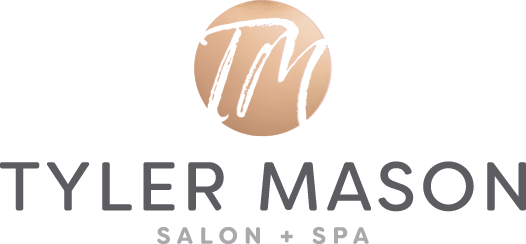2020 has been a powerful reminder that we are all in this together, and our choices and actions have the power to protect the most vulnerable among us in a big way. The same holds true when it comes to breast cancer. With your support, we can show every woman that her life is important. By working together, we can inspire hope and become a force for good “to get her” access to the care she needs.
October is Breast Cancer Awareness Month, an annual campaign to increase awareness of the disease. This month we’ll be raising money for Little Red Door Cancer Agency. They work to reduce the physical, emotional and financial burdens of cancer for medically underserved Hoosiers by providing free client services, survivor programming and education. Make a donation during your visit in October and be entered to win a Tyler Mason gift basket.
Symptoms and Signs
Have You Noticed Changes In Your Breasts Recently?
Every person should know the symptoms and signs of breast cancer, and any time an abnormality is discovered, it should be investigated by a healthcare professional. Most people who have breast cancer symptoms and signs will initially notice only one or two, and the presence of these symptoms and signs do not automatically mean that you have breast cancer. By performing monthly breast self-exams, you will be able to more easily identify any changes in your breast. Be sure to talk to your healthcare professional if you notice anything unusual, such as:
- A Change In How The Breast Or Nipple Looks Or Feels
- A Change In The Breast Or Nipple Appearance
- Any Nipple Discharge—Particularly Clear Discharge Or Bloody Discharge
Resource: “Symptoms and Signs.” National Breast Cancer Foundation, 26 Aug. 2020, www.nationalbreastcancer.org/breast-cancer-symptoms-and-signs.
Know Your Risk
What Do Scientists Actually Know About The Cause Of Breast Cancer?
Cancer grows when a cell’s DNA is damaged, but why or how that DNA becomes damaged is still unknown. It could be genetic or environmental, or in most cases, a combination of the two. But most patients will never know exactly what caused their cancer. However, there are certain established risk factors that are associated with breast cancer.
Genetic Factors
- Gender: Breast cancer occurs nearly 100 times more often in women than in men.
- Age: Two out of three women with invasive cancer are diagnosed after age 55.
- Race: Breast cancer is diagnosed more often in caucasian women than women of other races.
- Family History and Genetic Factors: If your mother, sister, father or child has been diagnosed with breast or ovarian cancer, you have a higher risk of being diagnosed with breast cancer in the future. Your risk increases if your relative was diagnosed before the age of 50.
- Personal Health History: If you have been diagnosed with breast cancer in one breast, you have an increased risk of being diagnosed with breast cancer in the other breast in the future. Also, your risk increases if abnormal breast cells have been detected before (such as atypical hyperplasia, lobular carcinoma in situ (LCIS) or ductal carcinoma in situ (DCIS)).
- Menstrual and Reproductive History: Early menstruation (before age 12), late menopause (after 55), having your first child at an older age, or never having given birth can also increase your risk for breast cancer.
- Certain Genome Changes: Mutations in certain genes, such as BRCA1 and BRCA2, can increase your risk for breast cancer. This is determined through a genetic test, which you may consider taking if you have a family history of breast cancer. Individuals with these gene mutations can pass the gene mutation onto their children.
- Dense Breast Tissue: Having dense breast tissue can increase your risk for breast cancer and make lumps harder to detect. Several states have passed laws requiring physicians to disclose to women if their mammogram indicates that they have dense breasts so that they are aware of this risk. Be sure to ask your physician if you have dense breasts and what the implications of having dense breasts are.
Environmental And Lifestyle Risk Factors
- Lack of Physical Activity: A sedentary lifestyle with little physical activity can increase your risk for breast cancer.
- Poor Diet: A diet high in saturated fat and lacking fruits and vegetables can increase your risk for breast cancer.
- Being Overweight or Obese: Being overweight or obese can increase your risk for breast cancer. Your risk is increased if you have already gone through menopause.
- Drinking Alcohol: Frequent consumption of alcohol can increase your risk for breast cancer. The more alcohol you consume, the greater the risk.
- Radiation to the Chest: Having radiation therapy to the chest before the age of 30 can increase your risk for breast cancer.
- Combined Hormone Replacement Therapy (HRT): Taking combined hormone replacement therapy, as prescribed for menopause, can increase your risk for breast cancer and increases the risk that the cancer will be detected at a more advanced stage.
These Do Not Cause Breast Cancer
- Breast cancer is not contagious; you can’t contract cancer from a person who has the disease.
- Breast cancer is not caused by wearing underwire bras, implants, deodorants, antiperspirants, mammograms, caffeine, plastic food serving items, microwaves, or cell phones, as myths often suggest.
Resource: “Risk Factors.” National Breast Cancer Foundation, 19 Sept. 2019, www.nationalbreastcancer.org/breast-cancer-risk-factors.
